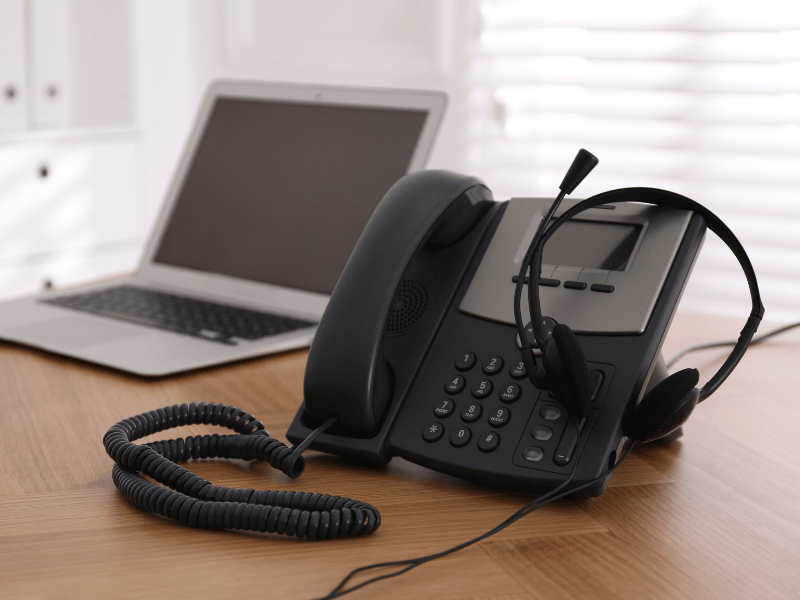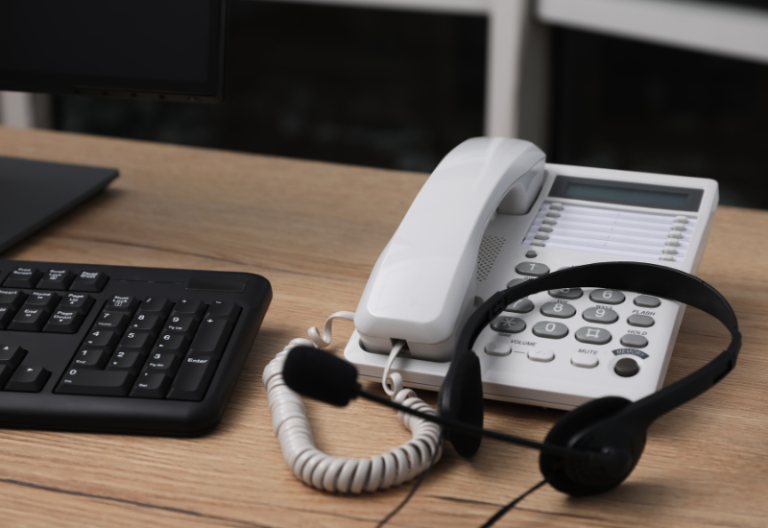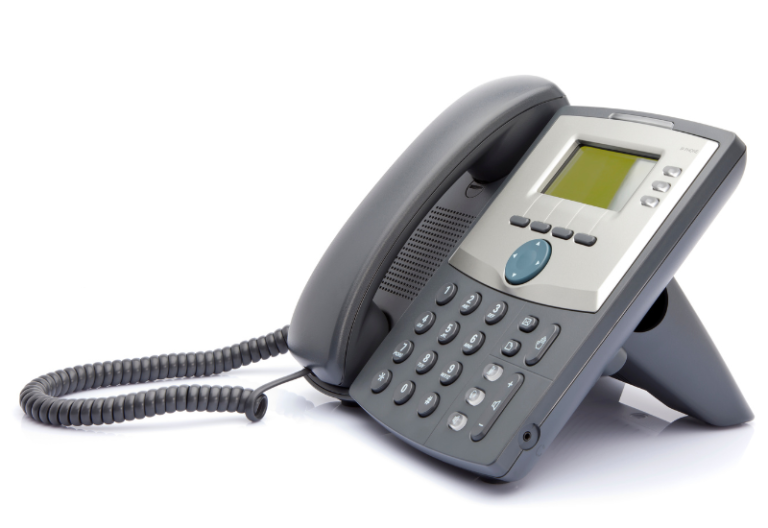VoIP phones enable users to make and receive phone calls over an IP network. By converting analog telephony audio into a digital format, these phones can deliver voice communications in real time, and that requires several protocols across IP networks.
Read on to find out what types of phones can work with VoIP and whether making and receiving IP phone calls is possible using your existing landline.
Table of Contents
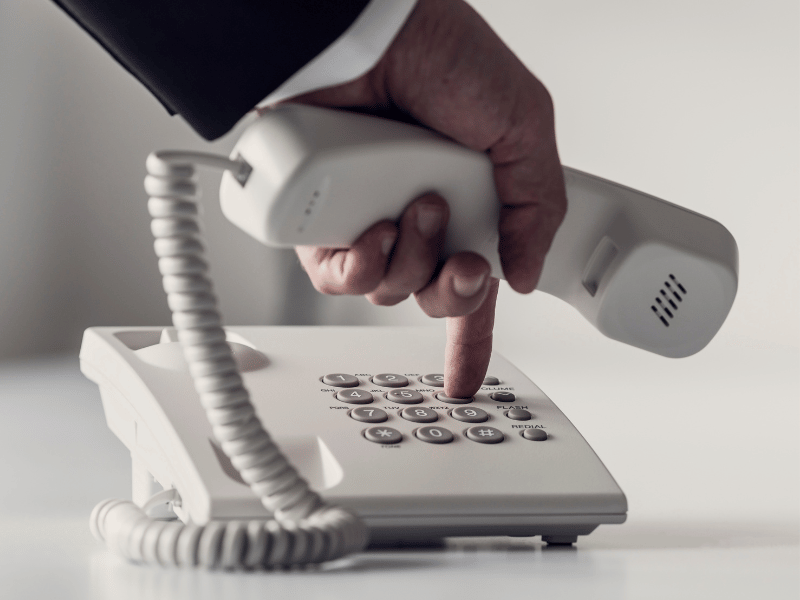
Can Any Phone Work With VoIP?
The best phone to use in a VoIP system is a SIP phone, but in general, any phone would work given the proper setup. Regular landline phones would even work with VoIP, given that you use an adapter to convert analog signals to digital. Phone calls also register differently depending on the device you’re using.
VoIP works with several types of phones, including:
Traditional landlines
Generally, landlines work by establishing a connection via an interconnected public switched telephone network, known as PSTN. A landline then uses circuit switching to transmit analog voice signals.
Since VoIP uses internet protocol to transmit signals, you will need a device that will convert the PTSN analog voice data to digital packets. That’s why, for VoIP to work on your traditional landline, you will need to use an ATA (Analog Telephone Adapter). Otherwise, your landline cannot establish a connection and make calls via VoIP.
SIP phones
Also called IP phones, Session Initiation Protocol (SIP) phones are specially built for VoIP and have features that traditional telephones lack. These can be hardware or software-based programs with options to integrate instant messaging and video conferencing. Typically, SIP phones utilize Voice over IP (VoIP) technology to transmit voice data over the Internet.
Softphones
A softphone isn’t a physical phone but a software system with the features of a desk phone. It can make IP calls using a smartphone, tablet, or desktop. You can install it on any device that supports software applications and use the keypad interface to mimic the functionality of a traditional telephone.
IP handsets
Another type of phone for VoIP is the IP handset, which can be connected to a laptop with a USB cable. IP handsets are comparable to portable phones that require configuration. For an IP handset to work, it needs a softphone to dial out numbers.
Smartphones and tablets
Whether you’re using Android or iOS, you can place VoIP calls using standard sims or eSIMS that are directly embedded in your phone. There are a lot of VoIP apps that you can install on smartphones and tablets. These devices have softphones integrated with a dial pad to compose numbers.
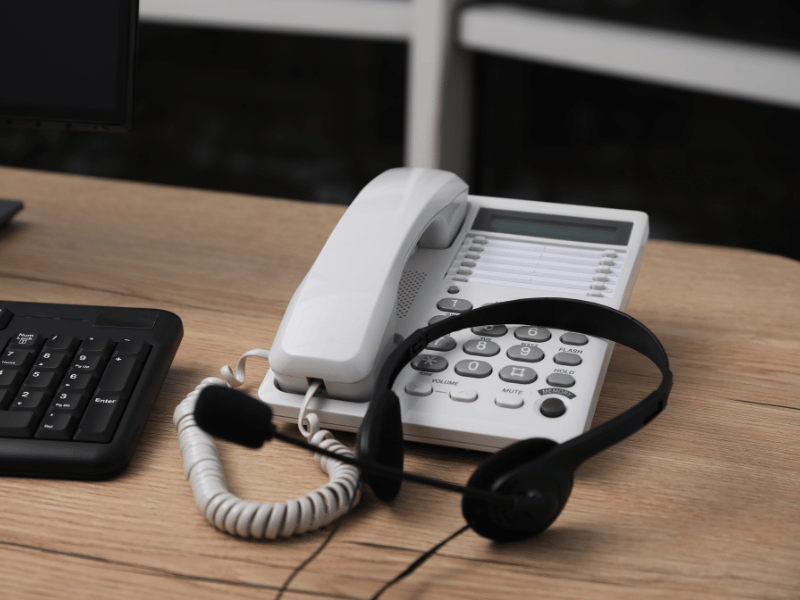
Types of VoIP Phone Devices
There are different types of VoIP phones. Each type comes with the features necessary to make and receive calls.
- Desktop VoIP phones: A standard desktop VoIP phone connects via Ethernet.
- USB phones: This hooks directly to your computer using the USB cable.
- Wireless IP phones: These come with a built-in WiFi or DECT transceiver unit connected to an access point.
- Video phones: Face-to-face meetings are possible with VoIP video phones.
- Conference phones: Multi-party phone calls can take place with IP conference phones.
5 Best Phones for VoIP
1. Yealink T54W
Yealink T54W is a type of prime business phone that you can connect to a computer via Bluetooth as a USB peripheral device. It’s a VoIP phone that can support hybrid SIP meetings and seamless internal/external communication.
VoIP Accounts: 16
Codecs: Opus, G.722, PCMU (G.711A), PCMA
(G.711µ), G.729, G.729A, G.729B, G.729AB, G.726,
G.723.1, iLBC
2. Yealink SIP T34W WiFi Desk Phone
As for the T34W, it supports 2.4G/5G built-in WiFi with more connectivity options. It has superior audio quality and comes with Smart Noise Filtering technology.
VoIP Accounts: 4
USB Ports: 1
Codecs: G.722, PCMU (G.711μ), PCMA(G.711A), G.723.1, G.729, G.729A, G.729B, G.729AB, G.726, iLBC
3. Yealink CP925 Conference Phone
Powered with the built-in 7-microphone, the Yealink CP925 comes with excellent voice pickup and noise cancellation. It covers up to 20 feet with 360° omni-direction for a clear and seamless voice communication.
VoIP Accounts: 1
USB Ports: None
Codecs: G722, G722.1C, G726, G.729, G.729A,
G723, iLBC, Opus, PCMU (G.711A), PCMA (G.711μ)
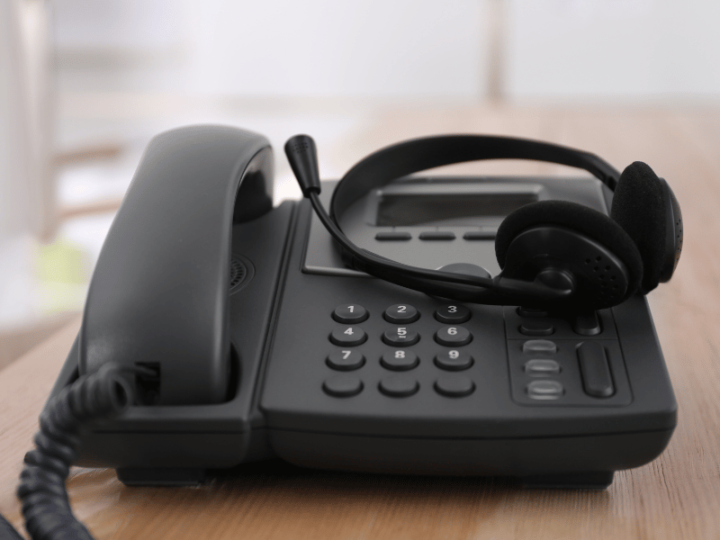
4. Yealink T58W-PRO Desk Phone
Featuring an innovative Bluetooth handset, Yealink T58W Pro has a built-in camera with cutting-edge acoustic to eliminate noise during calls. It also comes with enhanced system performance and Android 9.0 OS for data encryption and response speed.
VoIP Accounts: 16
USB Ports: 2
Codecs: Opus, G.722, PCMU (G.711A), PCMA (G.711μ), G.729, G.729A, G.729B, G.729AB, G.726, G.723.1, iLBC
5. Yealink T43U Unified Firmware Enhanced SIP Phone
The Yealink T43U can handle advanced calls with its simplified UI and up to 60 programmable keys. It has dual USB ports, Smart Noise Filtering, and Acoustic Shield. For maximum acoustic performance, the SIP phone comes with Yealink Optima HD Voice technology.
VoIP Lines: 12
USB Ports: 2
Codecs: AMR-WB (optional), Opus, G.722, AMR-NB (optional), Opus,
G.711(A/µ), G.723.1, G.729AB, G.726, iLBC
Use VoIP Without a SIP Phone or Landline
Choosing VoIP over traditional phone lines helps employees stay connected to their company phone line while working remotely. It also lets you keep your existing VoIP number even if you change your business address.
Here’s why switching to VoIP telephones can help meet your business needs:
- Superior call quality
- Lower costs
- Increased scalability
- Better flexibility
- Security and portability
Should you decide to switch and start using VoIP without SIP phones or existing landlines, iFax offers flexible plans to help you transition smoothly to a digital communication system.
Request a free demo to learn more about how iFax can help improve your business’s communication efficiency.



